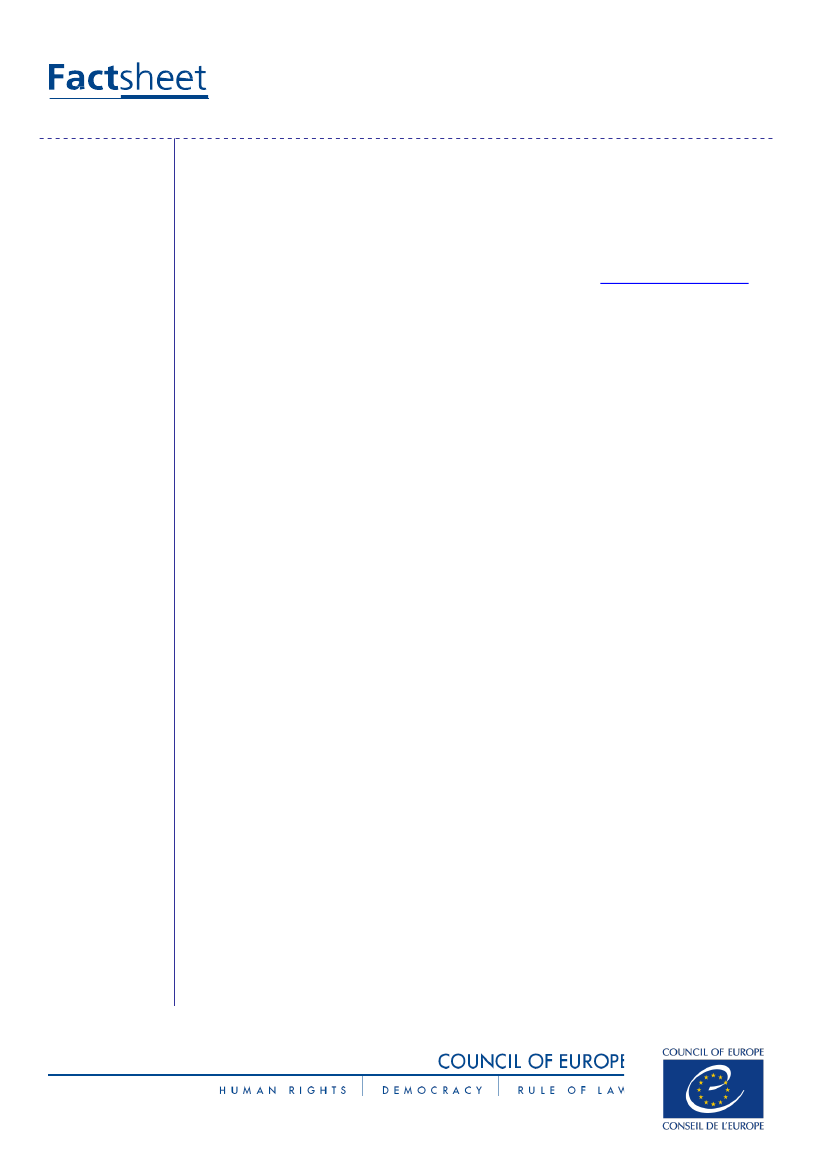
page
1/5
Counterfeit medical products
and similar crimes
Key points
The Council of Europe has drawn up the first international treaty against counterfeit medical
products and similar crimes involving threats to public health, the
MEDICRIME Convention,
to
establish as offences:
- the manufacturing of counterfeit medical products,
- supplying, offering to supply and trafficking in counterfeit medical products,
- the falsification of documents,
- the unauthorised manufacturing or supplying of medicinal products and the
marketing of medical devices that do not comply with conformity requirements.
The Convention also lays down a framework for national and international co-operation
between the competent health, police and customs authorities on both the national and
international levels, measures for crime prevention by also involving the private sector, and
the effective prosecution of crime and the protection of victims and witnesses. Furthermore, it
provides for the establishment of a committee of the Parties to follow up the implementation of
the Convention by the signatory states.
On 8 December 2010, the Committee of Ministers of the Council of Europe - representing 47
states in Europe - adopted the MEDICRIME Convention and invited the Secretary General to
disseminate the Convention widely among non- member states that may be interested in
becoming parties, in particular among those states with observer status with the European
Pharmacopeia Commission. The Committee of Ministers decided to open the Convention for
signature on 28 October 2011, at the occasion of a high-level thematic conference in Moscow.
To date, 23 states have signed the MEDICRIME Convention amongst those 3 states outside of
Europe, Guinea, Morocco and Israel.
As the counterfeiting of medical products and similar crimes constitute a global threat, the
Convention is open to member and non-member states of the Council of Europe, as has
been the case for other recent conventions. Therefore, the MEDICRIME Convention offers a
legal framework for world-wide co-operation to combat the counterfeiting of medical
products and similar crimes involving threats to public health.
Counterfeit medical products
and similar crimes
Questions and Answers
What is a counterfeit medical product? What are similar crimes?
The Convention defines a “counterfeit medical product” as a medical product whose
identity, and/or source are fraudulently misrepresented, including on the label.
“Similar crimes” are understood as the production, stock-piling, trafficking, offering for sale of
medical products intentionally by-passing the obligatory supervision/control of medicines
authorities: these crimes are as dangerous as counterfeiting and pose a threat of a
comparable dimension. Medicinal products used for doping and without a medical indication
are one of the outputs of “similar crimes”, as are products offered for treatment of diseases
without prior benefit risk analysis and authorisation of the competent drug regulatory authorities.